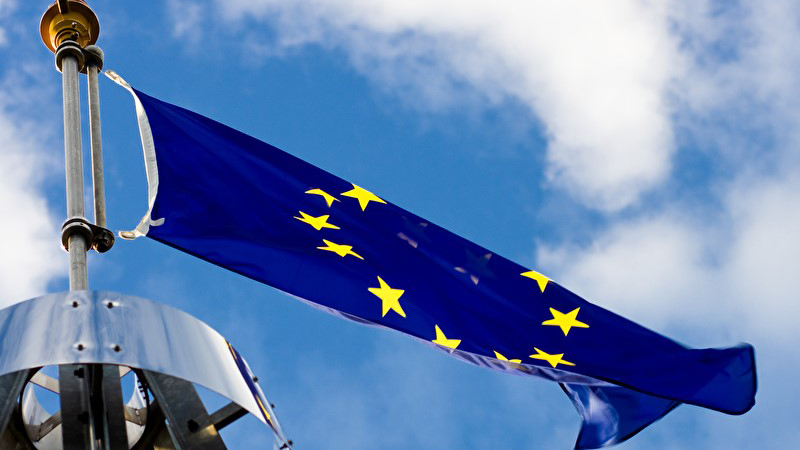Secure data exchange according to strict European standards: Certified participants in the "GAIA-X" project are to compete primarily with the large US and Chinese cloud providers. //next presents the idea behind the European cloud - and outlines the current state of development.

In the midst of the pandemic, Jörn Simon, Head of the Rhineland-Palatinate Regional Office at Techniker Krankenkasse, expresses a bold wish: "With a uniform digital data basis across all EU countries, epidemiological movements could be monitored much better, critical developments such as increases in the number of cases could be recognised at an early stage, and political measures could be decided on more quickly and more appropriately."
This wish for a "European Health Data Space" could become reality by 2025. And it will be based on a Franco-German initiative: Already in autumn 2019, Federal Minister of Economics Peter Altmaier presented his vision "GAIA-X". Within the framework of this project, a Europe-wide networked, open data infrastructure is to be established that links business, science and administration - naturally on the basis of uniform European security, data protection and transparency standards.
"We need the project for three main reasons," says the Federal Ministry of Economics:
On the corresponding website of Peter Altmaier's ministry, this vision is explained vividly, including a video. In mid-2020, the Federal Minister of Economics and his French counterpart Bruno Le Maire then also gave an update on the progress of the project at the time and specified their expectations for Europe's future cloud.
And what does the economy say? "GAIA-X is a federal concept - this creates room for self-determination," says Andreas Weiss, head of the digital business models division at the eco association. This means above all: GAIA-X should ensure more independence from non-European cloud providers - above all from offers such as Amazon AWS, Google Cloud, Microsoft Azure or Alicloud. In addition, it is important to strengthen the sovereignty of the data owners in the future, since thanks to GAIA-X they could change cloud providers at any time without having to log in again.
Not only the health sector, but also industry should benefit from a high-performance and competitive data infrastructure based on EU-wide standards. "In an economic development characterised by distributed value networks, there is a business necessity for companies to share data," says Prof. Boris Otto of the Fraunhofer Institute for Software and Systems Engineering ISST. Those who use a broader database can, for example, make product developments more efficient, optimise their delivery and production processes or carry out AI-supported quality controls. Boris Otto gives further reasons why companies should participate in GAIA-X in the YouTube video linked below.
The BDI also demands: "The federal, state and local governments must seize the opportunity to use Gaia-X to drive forward the digitalisation of public administration," says Iris Plöger, member of the BDI's Executive Board. Ultimately, not only companies but also consumers would benefit from this.
In the meantime, more than 350 organisations from all over Europe have participated in the development of GAIA-X. Among them are well-known German companies such as SAP, Deutsche Telekom, Bosch, Siemens and Deutsche Bank or associations such as the BDI, Bitkom and Trusted Cloud. But many small and medium-sized companies are also building the federated data infrastructure. And the circle of interested parties is growing steadily.
In recent months, GAIA-X has also attracted attention in circles that were probably not originally part of the target group. For example, the Chinese electronics company Huawei, which the US has been imposing sanctions on since 2019. And the much-watched large US clouds have already signalled their willingness to cooperate. While some IT experts fear that GAIA-X will never reach a critical volume without these "hyperscalers" and could ultimately flop due to a lack of data mass, others consider it questionable how, for example, US companies that are subject to the Patriot Act could even meet the significantly stricter European data protection standards.
Regardless of this dilemma, the following months will be all about one thing: "GAIA-X must now be brought to market as quickly as possible with real added value for users," demands Bitkom President Achim Berg, for example. The Federal Ministry of Economics and Technology has also recognised this and launched the GAIA-X funding competition: Project outlines that can be realised via the European data infrastructure can be submitted until 7 May 2021. A total of around 190 million euros will be made available to so-called lighthouse projects from all sectors. They are to deal primarily with innovative intelligent applications such as the Internet of Things (IoT), Big Data or Artificial Intelligence, or with data spaces for new products, business models and services - so that in the future supply chains will become even leaner and more stable and at the same time consumers will benefit from more individualised offers. Meanwhile, the official GAIA-X blog of the Federal Ministry of Economics and Technology provides information on current progress.
Text: Susanne Widrat
Most popular